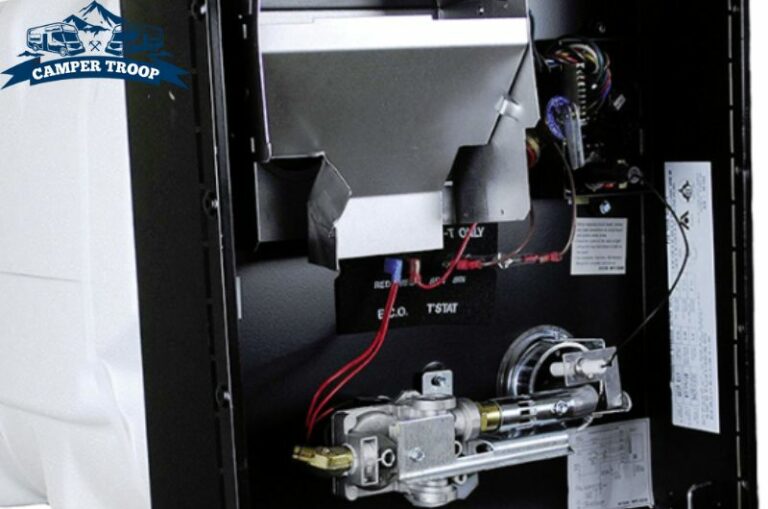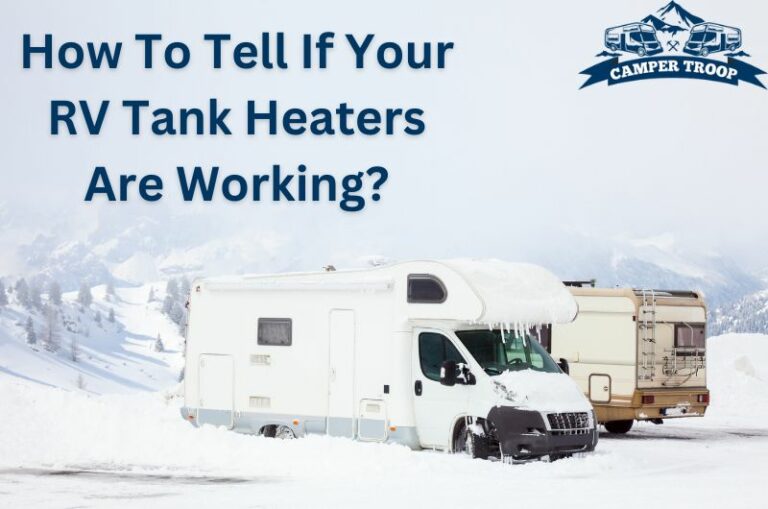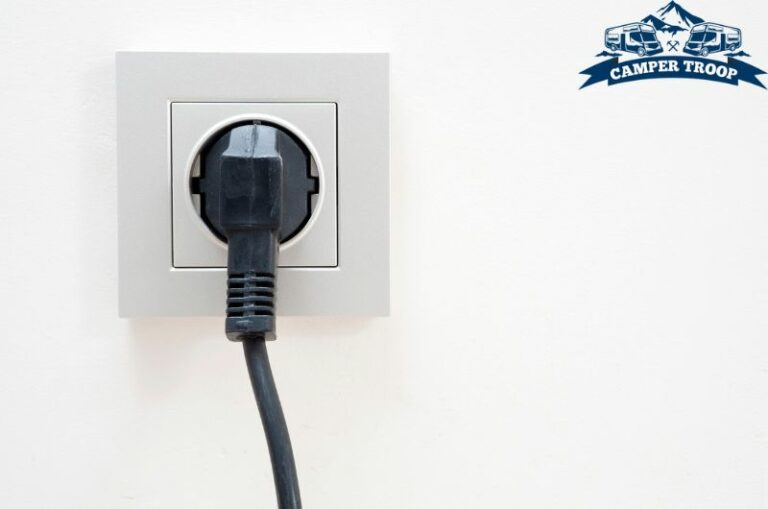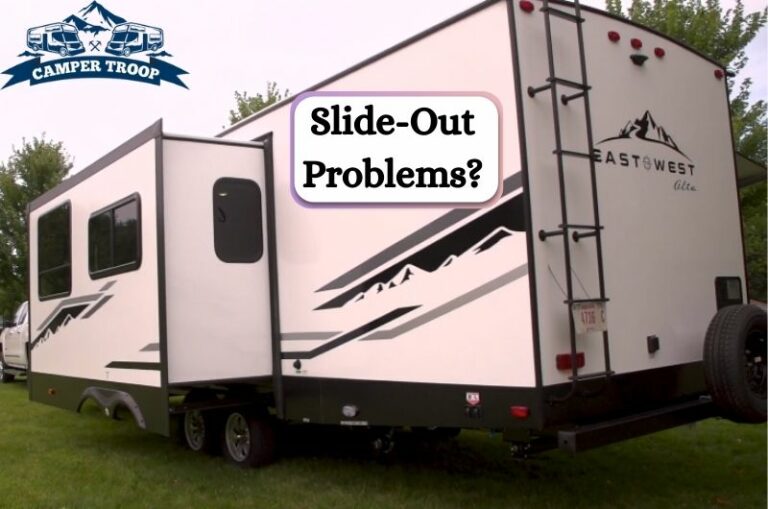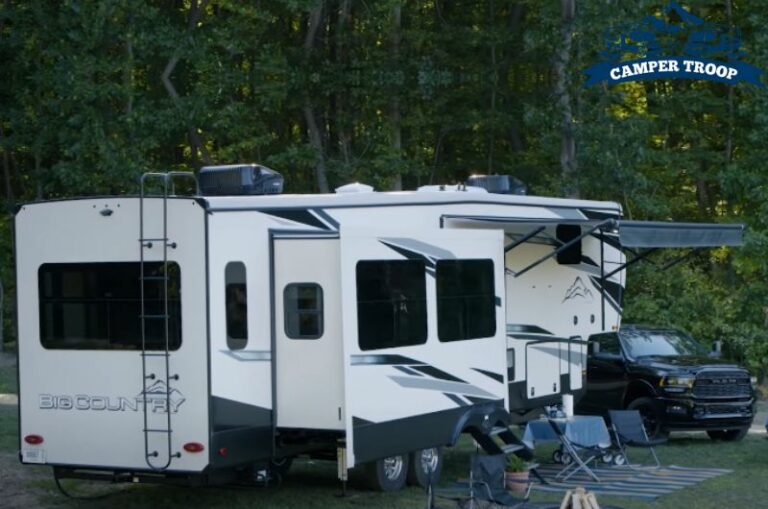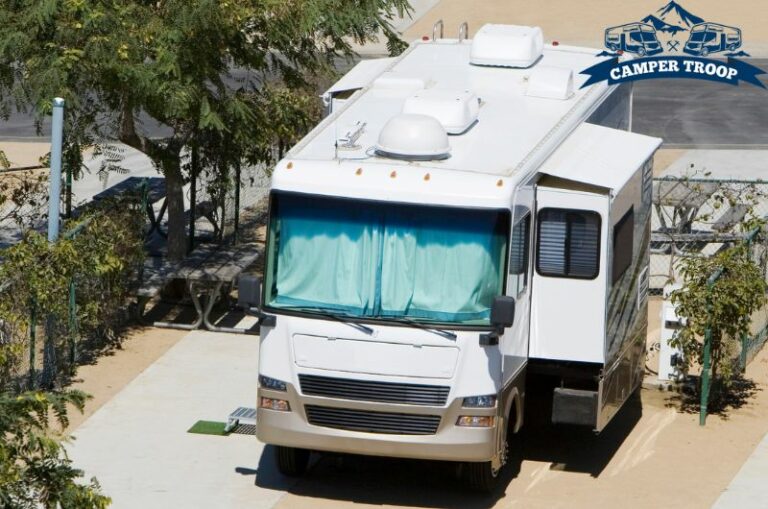Why Does My Rv Water Heater Sound Like A Jet Engine?
A water heater is one of the most crucial components of an RV. So, you use it almost every day you are in your RV. But, a few days back, I faced an unusual problem with my water: it started sounding like a jet engine.
So, I found the main reason an RV water heater sounds like a jet engine is mostly gas-related issues like gas leaking from a line or valve. A heat exchanger in your water heater may be broken, allowing gas to leak.
As I did some research and found multiple causes and also solutions to this particular problem. And in this article, I will share how I fixed my RV water heater sounding like a Jet engine.
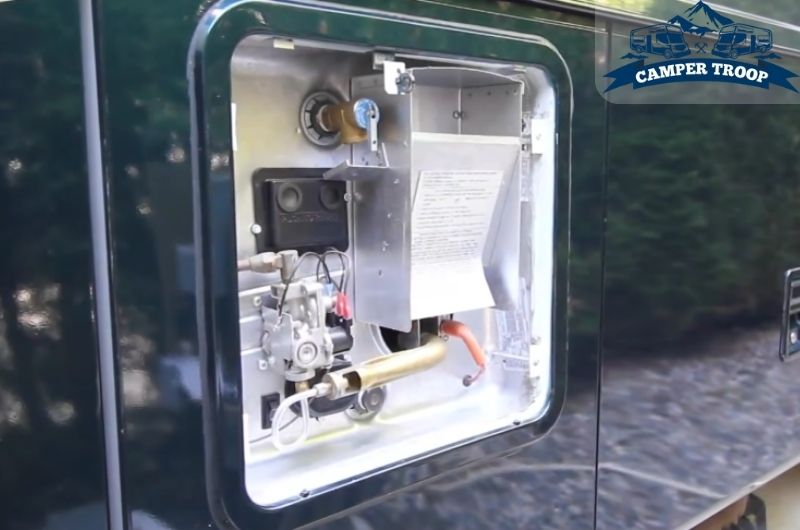
Why Does Rv Water Heater Sound Like A Jet Engine?
An RV water heater can be broken in many aspects, and not all of them can be identified by an individual. But, the jet engine sound on an RV water heater is instead a common problem which happens because of Six significant reasons, and those are:
- Leaks/ Incompatible Water Pressure
- Faulty Blower Motor Bearing
- Sediment Build-Up
- Loose Electronic Parts or Lines
- Broken Heat Exchanger
- Faulty Thermostat
How Can I Fix My RV Water Heater Sounding Like A Jet Engine?
I understand that the RV water heater jet engine sound can be annoying, and only some have time to go to an electrician. When you are in the middle of a road, mechanics are only sometimes even available.
But, there is good news: the causes mentioned above can be solved with some guidance and might not even require an expert to fix the problem.
Before you begin, turn off the water heater and let the tank cool down. If you have a problem switching it off, turn it off from the primary power source. Now, let’s begin.
1. Check The Pressure Relief Valve
Excessive pressure inside an RV water tank can be a major reason for jet engine sounds. This extra pressure gets out of your furnace and makes the water heater mechanism faulty, and irritating Jet engine sounds occur.
Too much pressure can also make a risky explosion, so you must fix it as soon as you notice it. Here’s how to do it:
- Open the pressure relief valve and check if it’s rusted because, over time usage, it gets rusted.
- You will need a garden hose, Teflon tape, and a wire brush
- If the rust is removable, clean it, so the pressure flows smoothly.
- If not, you need to buy a new one which will cost from $15 to $30.
- Install the new pressure relief valve; your RV water heater won’t sound like a jet engine.
Read Also: RV Water Heater Anode Rod: Everything You Need To Know
2. Change The Blower Motor Bearing
A blower fan’s main work is to exhaust water heater gases through vent pipes using pressure. So, when the blower fan’s motor bearing is malfunctioning, it can create noise like a jet engine. There is no solution for repairing a bearing, so replacing it is the only way here is you can do it:
- Detach the blower fan segment from the RV water heater.
- Unscrew all 4 screws from the bottom part, so the fan becomes detachable.
- If you rotate the motor, you will see friction and irritating noise responsible for jet engine sound.
- Once the fan is off, detach the motor and remove the cover.
- Replace the motor bearing.
Note: Bearings are cheap, but if it doesn’t solve the problem, you need to get a complete blower fan replacement that can cost more than $200.
3. Flush Your RV Water Heater
Sediment build-up in your RV water heater is one of the most common issues. This happens naturally when minerals and other substances flow with the water.
With the combination of metal and minerals, the heating device gets damaged and causes unusual sounds like jet engine noise.
The solution is straightforward if you follow the instructions below correctly.
- Shut down the main power line of the water heater and stop the cold water valve from refilling while flushing.
- You will need a garden hose to connect with the drain stopper, so the water flows outside the RV.
- Use a screwdriver to remove the drain stopper valve, let the water flow, and carefully see if the water flow is okay.
- You will notice sediments getting out. Keep pouring cold water and keep flushing unless you don’t see any more sediments.
- Close the pressure relief valve and turn on an RV water heater.
Read Also: How to Troubleshoot & Fix RV Tankless Water Heater Problems?
4. Check The Leaking Lines And Fix
Leaks can happen for various reasons and cause inconsistent water pressure inside the RV water heater. So, checking those leaks and fixing them is a must.
This problem is related to the pressure relief valve. So, you can fix it by following the first solution.
5. Put A New Heat Exchanger
A heat exchanger is a device that transfers heat from one source to another inside an RV water heater. On long-term usage, this device can get faulty; unfortunately, there is no repair option.
Also, you cannot replace it all by yourself. Keep your water heater off and call your nearby electrician, who can assist you further.
6. Adjust Temperature/ Reset Thermostat
Thermostat maintenance which temperature the water will heat. But, when this thermostat malfunctions, the temperature can go too high can cause an accident.
This can be solved by resetting the thermostat by pressing the reset button and adjusting a slightly lower temperature.
Read Also: Where is the RV Water Heater Reset Button and How To Use It?
FAQs.
Every RV user uses their water heater as it is essential. So when they hear irritating noises on it, many questions appear, some of which are answered below.
Can RV Water Heaters Explode?
It is rare, but quite possible when you leave the RV water heater noise unnoticed. When the inside pressure rises to an extreme level, it can explode.
Does A Regular RV Water Heater Make Noise?
No RV water heater doesn’t have any irritating or loud noises. It is instead a very low-pitched noise like your air-conditioner or refrigerator. You should do a maintenance check if the noise is more than that.
Will RV Water Heater Jet Engine Sound Reduce Itself?
It is the opposite, and the situation will worsen if you keep waiting for the noise to reduce itself. You must manually fix the issue, or a severe incident may happen.
How To Figure Out If My RV Water Heater Line Is Blocked?
You can attach a pipe with the drain stopper and let the water flow out of the water heater. If the flow is correct, that line has no obstacle.
Read Also: RV Water Heater Drain Plug Size: Everything you need to know
Conclusion
The water heater on an RV is connected to almost everything that uses water and runs almost continuously. So, jet engine noises coming out can be very frustrating.
More than that, it is very risky as there is a chance of explosion, which can cause severe injury. So, take the initiative as soon as you notice the sound. If you cannot fix it on your own, call an expert, and until then, keep the RV water heater off.
Read Also: 7 Easy Solutions For RV Water Heater Igniter Not Clicking

Zayan is an accomplished author and a go-to expert for all things RV and camper-related. With a passion for adventure and a knack for problem-solving, he has spent years exploring the open road and fine-tuning his knowledge of recreational vehicles.
Zayan’s writing is a testament to his expertise, offering readers practical solutions to common RV dilemmas. Whether it’s troubleshooting mechanical issues, optimizing space, or planning the perfect road trip, Zayan’s insightful advice and engaging storytelling make him an invaluable resource for both seasoned travelers and newcomers to the world of RVing.

